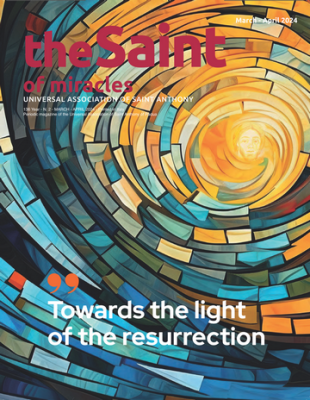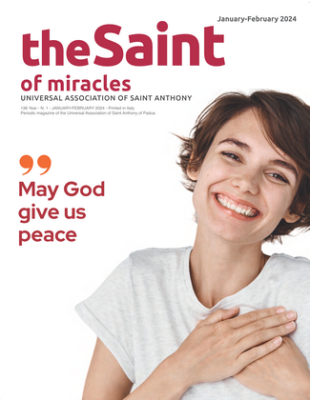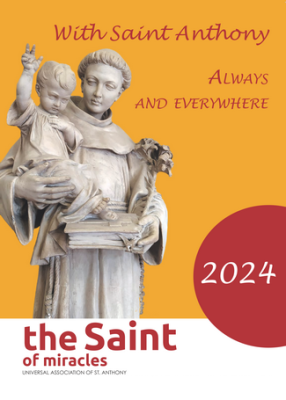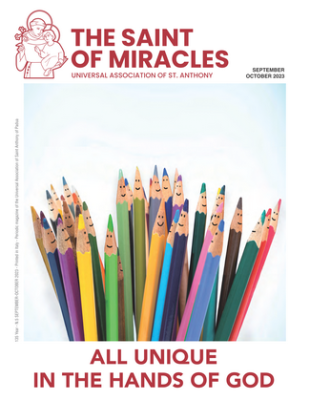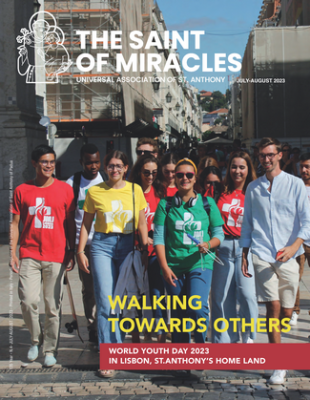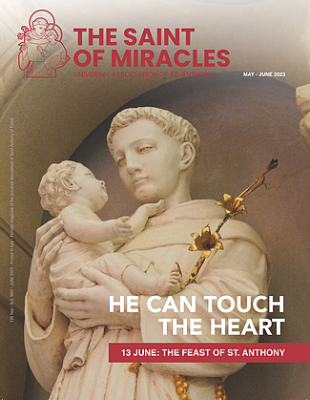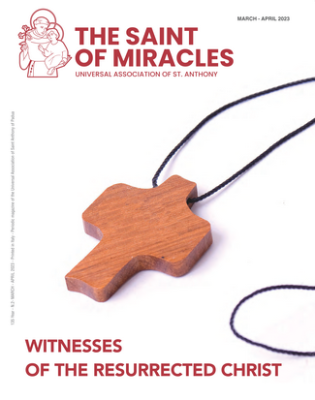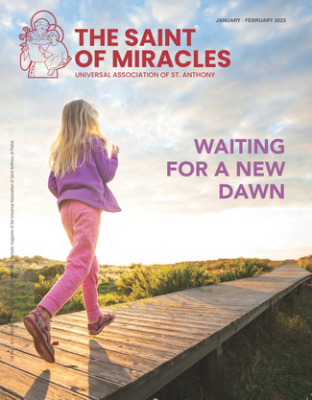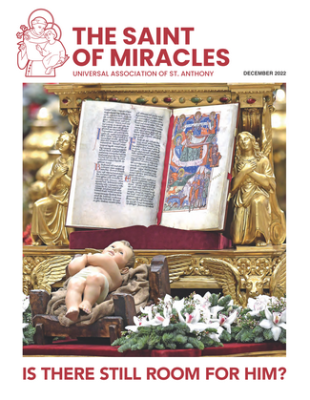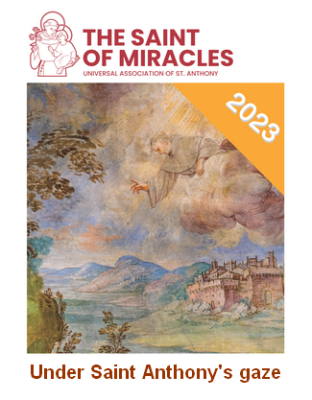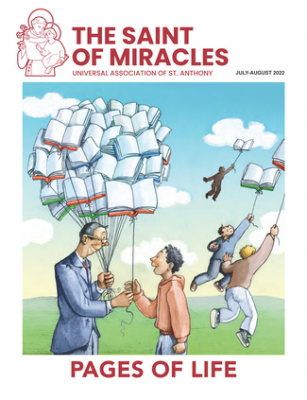By Deborah Castellano Lubov
Our ability to master ourselves and moderate our passions, can lead us toward true happiness....
Pope Francis offered this reminder during his weekly General Audience on Wednesday in St. Peter's Square.
This week, the Pope continued his catechetical series on vices and virtues. After months dedicated to the vices, he transitioned to discussing virtues, thus far focusing on prudence, patience, justice, fortitude, and, now, temperance.
Moderates our relationship with pleasures
The Catechism describes the cardinal virtue of temperance as “the moral virtue that moderates the attraction of pleasures and provides balance in the use of created goods.”
Moreover, the Catechism says that temperance “ensures the will’s mastery over instincts and keeps desires within the limits of what is honorable," noting the temperate person "directs the sensitive appetites toward what is good and maintains a healthy discretion, and does not follow the base desires, but restrains the appetites.”
With the other three cardinal virtues, this virtue shares a history that goes far back in time and does not only belong to Christians.
Power over oneself
The Pope recalled Aristotle's reflecting on enkráteia, the Greek term literally means “power over oneself,” as the great philosopher studied virtues as he explored the concept of happiness.
Over time, the Holy Father recalled, temperance was understood as one's "capacity for self-mastery," the "art of not letting oneself be overcome by rebellious passions."
Temperance, the Pope suggested, is the virtue of the right measure.
Savours with good judgment amid impulses
Faced with pleasures, the Pope said the temperate person acts judiciously.
"The free course of impulses and total license accorded to pleasures end up backfiring on us, plunging us into a state of boredom," the Pope said. "How many people who have wanted to try everything voraciously have found themselves losing the taste for everything!"
Given this, he said, we should enjoy moderately.
"For example, to appreciate a good wine," the Pope observed, is "to taste it in small sips," rather than drinking it all at once.
“To appreciate a good wine, to taste it in small sips, is better than swallowing it all in one go”
Knows the right measure
The temperate person, Pope Francis said, knows how to weigh words and dose them well. "He does not allow a moment’s anger to ruin relationships and friendships that can then only be rebuilt with difficulty," especially, the Pope said, "in family life, where inhibitions are lower, we all run the risk of not keeping tensions, irritations and anger in check."
He acknowledged that they know the time to speak and to be silent, both in the right measure, knowing how to control their own irascibility.
"This does not mean we always find him with a peaceful and smiling face," the Pope said, recognizing that at times it is necessary to be indignant, "but always in the right way."
A word of rebuke, he said, is at times healthier than a sour, rancorous silence. "The temperate person knows that nothing is more uncomfortable than correcting another person, but he also knows that it is necessary."
Manages extremes gracefully
"In some cases, the temperate person succeeds in holding extremes together," the Pope said, stating, "he affirms absolute principles, asserts non-negotiable values, but also knows how to understand people and shows empathy for them."
The gift of the temperate person, the Holy Father said, is being "balanced," which the Pope described as precious and rare.
When "everything in our world pushes to excess," the Pope said that temperance "combines well with Gospel values such as smallness, discretion, modesty, meekness."
Pope Francis concluded, by clarifying that temperance does not make one "grey and joyless," but "on the contrary," it "lets one enjoy the goods of life better."
VaticanNews
]]>By Deborah Castellano Lubov
This September, marking his 45th Apostolic Journey abroad, Pope Francis will set off on a whirlwind four-nation journey across Asia and Oceania.
Pope Francis will first visit Indonesia, the world’s largest Muslim-majority country, where Catholics number over 8 million, or 3.1 percent of the population, staying in its capital of Indonesia from 3-6 September, before continuing to Papua New Guinea, Timor-Leste and Singapore, in what will become the longest journey of the Holy Father's pontificate.
For the occasion, Cardinal Ignatius Suharyo Hardjoatmodjo of Jakarta, Indonesia, granted Vatican News the following wide-ranging interview.
Here is a transcript of the conversation:
Q: Cardinal Suharyo, how do you welcome the upcoming Apostolic Visit of Pope Francis?
Very enthusiastically. But not only is the Catholic community very enthusiastic to receive the news that Pope Francis is visiting Indonesia, but the Great Imam of the State Mosque Istiqlal was among those who first announced the coming visit of Pope Francis, some weeks before the Vatican’s formal announcement.
Relations between the Vatican and Indonesia have a long history. The Vatican is one among five countries which recognized the Proclamation of Independence of Indonesia. In 1947, there was already an Apostolic Delegate, which is now embassy, in Jakarta.
I tell the Catholic community, that the physical presence of Pope Francis is very important, while telling them to not forget to always try to deepen our knowledge of his teachings, given to us through different Encyclical letters and Apostolic Exhortations, such as Evangelii Gaudium, Laudato si, Fratelli Tutti, etc.
Q: The Catholic community makes up about 3 percent of the population of Indonesia, the Asian country with the largest number of Muslim believers in the world. Can you tell us more about your small flock, this Catholic community, which now will be welcoming Pope Francis? In the day-to-day, what is it like to be a Catholic in the country?
Indonesia is a very large country, consisting of many islands, almost 17 thousand of them, and many tribes, as there are more than 1300 ethnic groups, with so many cultures and religions. It's true, Indonesia is the country with the largest number of Muslims in the world. But Islam in Indonesia is not the same as Islam in various other countries. In Indonesia, there are the two largest Islamic organizations, Muhammadiyah and Nahdlatul Ulama, both of which are very open and tolerant. This is what determines life together as citizens. I myself have very good relations with religious leaders at the central and regional levels.
Basically, there is freedom of religion in Indonesia, but the reality, in the field, varies from place to place. At this time, the State seems very serious about maintaining religious freedom. So in our daily lives, we live as ordinary citizens. We are able to work in various institutions, including government institutions. On Sundays, people go to church. Some have to travel long distances to get to the place of worship. In general, we can live in peace with our neighbors. It is also true that not a few Catholics have become leaders of plural society, working in State institutions in high positions.
In general, Catholics in Indonesia live normally as members of society. Living together as fellow citizens, even though they have different religions, is something very ordinary. In fact, there are quite a few families whose members consist of adherents of different religions. This might not be imaginable in other countries. There are also quite a few priests and religious who come from Muslim, Hindu or Buddhist families. Many religious communities live, in their convents, in the midst of people's houses.
“There are also quite a few priests and religious who come from Muslim, Hindu or Buddhist families”
Q: There are many wars crippling the world, but Indonesia seems to be a model of peaceful coexistence, especially among religions. What is the secret to this? Are there also areas needed for improvement?
One of the main reasons is the history of the formation of the Indonesian State. Before Indonesia existed, this region was colonized by foreign countries for more than 350 years. There are three milestones in the history of the formation of Indonesia. First, in May 1908, national awareness began to grow. It was called National Awakening Day. This awareness culminated in October 1928 in an event called the Youth Pledge. In this event, the first session among three was held in the complex of the Cathedral compound, youth organizations with regional backgrounds declared that they were "one homeland, one nation and one language," which is Indonesia. The term Indonesia began to be used. This movement culminated in the Proclamation of Indonesian Independence on 17 August 1945.
Indonesian independence was not a gift from the colonialists, but the result of a long struggle involving all components of the nation, involving all ethnic groups and all religious adherents. The next day Pancasila [the official, foundational philosophical theory of Indonesia] was established as the basis of the State. Thus, Indonesia is not a religious State, but the unitary State of the Republic of Indonesia. This history of struggle involving all citizens and Pancasila as the basis of the country is what makes the unity of Indonesian citizens strong.
“Indonesian independence was not a gift from the colonialists, but the result of a long struggle involving all components of the nation, involving all ethnic groups and all religious adherents.”
Q: How so?
Pancasila consists of five fundamental principles which serves as Foundation of Indonesian Constitution. The first is 'belief in the one and only God.' The second is 'just and civilized humanity.' The third is 'unity of Indonesia.' The fourth is 'democracy guided by the inner wisdom in the unanimity arising out of deliberation amongst representatives,' and the fifth is 'social justice for the whole people of Indonesia.'
The history of the Indonesian people in the Catholic Church is expressed in the Preface to The Eucharistic Prayer, which is named Preface for the Country, as being parallel to the liberation of the Old Testament people of God from Egypt to the promised land. Just as the exodus journey is not free from challenges, the Indonesian nation's journey towards the ideals of independence is never free from challenges. Some of the greatest ones have to do with an unequal distribution of prosperity, both in Java and outside Java; transnational Islamic influence, groups that still want to establish an Islamic State; economic inequality; and the political system, especially an unfavorable economy toward the weak.
Q: The Pope has called for a Year of Prayer. How do you personally welcome this initiative, and how do you suggest your people do the same?
Of course, we really appreciate the various movements offered by Pope Francis, and coming from the Vatican, and Church, in general. The challenge in to synchronize it with our other pastoral theme. Nationally, the Indonesian Catholic Bishops' Conference each year offers a national pastoral theme. Then each Diocese, inspired by the national pastoral theme, chooses a pastoral focus adapted to the context of each diocese, usually lasting one year. Even without a Year of Prayer, the Catholic community in Indonesia prays diligently.
“Even without a Year of Prayer, the Catholic community in Indonesia prays diligently.”
Q: Could you elaborate on this?
There are prayer meetings during Advent, Lent, Holy Bible Month, Liturgical Month, prayer in the basic communities, pilgrimages and many other initiatives in the context of prayer.
Catechesis regarding prayer is of course always important. What is best known to lay people, in general, is the supplication prayer. However, there are other types of prayer. Not a few lay people pray the Liturgy of the Hours because there is a religious congregation, the Dominicans, which provides the materials. Praying the Rosary in the basic community is a widespread habit. At the time of death and commemorations for the departed, not only on November 2, but according to our culture, there are commemorations after 40 days, 100 days, 1 year, 2 years, and 1000 days, the congregation gathers for the Eucharistic Celebration and prayer.
Q: The Pope had directed the Vatican's Dicastery for the Doctrine of the Faith to publish the recently-issued Dignitas Infinita, a text which reaffirms the Church's conviction that each and every person has inalienable intrinsic human dignity, and also raises awareness of several grave violations of this dignity, listing and reflecting on each. What value do you see of this document, and are there certain aspects that you see to be particularly relevant to your context in Indonesia, or in Asia in general?
It is an excellent document and very important for pastoral guidance. The second principle in Pancasila also emphasizes respect for human dignity. Often the reality unfortunately is very far from the principles presented in the document, due to political, economic, and perhaps also socio-cultural systems that do not respect human rights. Everything that is said, including issues of violations of human dignity, is also very relevant for Indonesia in particular, and Asia, in general.
Q: Your Eminence, from your experience and from your reality, what can you tell us about the witness of Christians in Asia?
As you surely know, Asia is a very large continent with different histories, cultures and political systems. I can only say about Indonesia, especially in the area of the Archdiocese of Jakarta. The key words I would use to describe their witness, is that they 'do good work.'
I remember a small experience about a Catholic teacher who was placed in a large rural area, and there was no one who was Catholic apart from him. He did not feel isolated, but continued to look for ways to do good. He taught a village where the population was illiterate. To reach the place, he had to walk on foot for three hours and back for another three hours. He did this twice a week. When I visited his family, he said to me: 'Father, I did all this so that people here know that Catholics only want to do good.'
“When I visited his family, he said to me: 'Father, I did all this so that people here know that Catholics only want to do good.'”
We see them doing good in various ways, through education, from primary to higher education, health services, social services such as credit unions, and working together with other community members. Said in another way, they 'do good' through the dialogue, if you will, they offer in their work and through their life.
Q: Catholics around the world are in the midst of their Easter Season. Could you share with us how the Catholics of Indonesia are living this time, and what message you have for them?
Easter celebrations in Indonesia in general and in Jakarta in particular are very lively. Last Easter, there were four Masses at the Jakarta Cathedral church. It is estimated that around 10 thousand people came to Mass. We worshiped calmly, because security was very good.
This year, the Archdiocese of Jakarta set the theme of solidarity and subsidiarity for the common good. This is the theme that was explored during Lent in the basic communities, and each community is concretely looking for, and pursuing, real forms of solidarity, especially through empowerment for small traders, helping children with school fees, and through various other movements.
VaticanNews
]]>By Christopher Wells
In the past ten years, 180 children have been killed as a result of school attacks, while more than 1680 have been kidnapped.
A new report by UNICEF Nigeria also finds that some 60 school staff have been kidnapped and 14 killed, and more than 70 school attacks have occurred.
The report was issued on the tenth anniversary of the abduction of 276 mostly Christian female students in Chibok, Borno State, by the Islamist terror group Boko Haram. It comes in the wake of yet another abduction of school children in Kaduna state last month. While attacks and abductions are sometimes related to ideological or social conflicts, many are perpetrated by criminal gangs with purely economic motives, hoping to exchange hostages for hefty ransoms.
Education at risk due to threats to children’s safety
The Minimum Standards for Safe Schools in Nigeria: Monitoring report July-December 2023 “summarises the results of an assessment conducted to evaluate” the implementation of the government's Minimum Standards in some ten states in northern Nigeria. According to the report’s forward, “Nigeria’s achievements in advancing education, including increasing primary school attendance and gender parity, remain threatened by tangible risks to children’s safety.”
The report highlights protracted conflicts in the north-west, leading to continued attacks on schools and the killing and abduction of children and teachers; as well as tensions related to extreme weather events and natural disasters, which are aggravated by ongoing climate change.
As a result, UNICEF Nigeria notes that in 2020, around 11,500 schools were closed due to attacks, while in 2021 more than one million children were afraid of going back to school.
Urgent need for government to prioritize safety
While Nigeria has taken “commendable steps to institutionalize a commitment to school safety,” the UNICEF report laments failures to implement that commitment throughout the states evaluated.
“I therefore call on the government to urgently prioritize further interventions and funding to scale up school safety efforts in every school across the country,” writes Cristian Munduate, UNICEF Representative Nigeria, while reiterating her organization’s commitment “to continuing to support the Federal Ministry of Education, state and local education authorities, communities and schools to realize safe, inclusive, quality education for every child.”
VaticanNews
]]>By Fr. Pawel Rytel-Andrianik
"Today, we thank the Lord for the great inspiration St. John Paul II had by convening the first WYD. We also thank how Pope Benedict XVI and Pope Francis lived those days. They lived WYD as an indispensable moment of the Church," said Cardinal José Tolentino de Mendonça, Prefect of the Dicastery for Culture and Education.
He spoke on Saturday evening during Mass in the St. Lawrence Center, 40 years after the first gathering of young people in St. Peter's Square, on April 14, 1984.
He stressed that World Youth Days have produced many “fruits of hope, love, fruits of youth, of springtime in the heart of the Church."
The Prefect of the Dicastery for Culture and Education told young people that Jesus invites all by saying, "Come, touch, see, eat."
"Christ is decisive in the human person's life,” he said. “The importance of Christ is not an abstract theoretical truth; it is something we have touched."
He pointed out that during World Youth Days, young people worldwide experience the joy of being believers, realizing human fraternity, hugging, praying, worshipping, listening, laughing, crying, and treasuring this experience of the Church.
"This transforms lives, has transformed the story of the great ones, and continues to transform our lives, our story,” said the Cardinal Prefect. “Christ does not want us to be spectators. Christ wants us to be witnesses. And the witness is the one who says, 'I have seen with my eyes, I have heard with my ears, I have touched.' This makes us a missionary Church, an outgoing Church."
Cardinal Tolentino de Mendonça stressed that Pope Francis asks young people not to be "at the balcony watching history pass by, but in the midst of history, making noise, but a noise that is not just noise; it is the good news."
He also quoted St. John Paul II saying that young people are the first evangelizers of other days.
"Christ is counting on you to heal wounds, open new horizons, build not a culture of death but a culture of life and build the civilization of love. Mary, present in every WYD as the reference point, helps us look at Christ," concluded Cardinal Tolentino de Mendonça.
The Prefect greeted those present, including the Secretary of the Dicastery for the Laity, Family and Life, Mr. Gleison De Paula Souza, the Shalom Community, which provides pastoral care in St. Lawrence Church, and the people who were present 40 years ago and participated in the Mass. The day concluded with a vigil of prayer and adoration of the Cross, "Rise up."
The next day, on Sunday, April 14, the St. Lawrence Center hosted a celebration of Mass presided over by Cardinal Lazarus You Heung-Sik, Prefect of the Dicastery for the Clergy.
After the Mass, several people shared their experience of World Youth Days, as part of a commemoration recalling that first gathering in St. Peter’s Square.
After the gathering in 1984, St. John Paul II invited young people back to Rome in 1986 for the first World Youth Day.
The next World Youth Day will take place in Seoul, South Korea, in 2027. Before that event, there will be a Youth Jubilee in Rome in 2025.
VaticanNews
]]>Then in 1888 he started first, the publication of the magazine “The Saint of Miracles” and then the Libreria Antoniana.
“The Saint of Miracles” is a record that very few magazines can claim. Maybe no even its founder, whose intellectual and organization powers did so much for the diffusion of publications about St. Anthony, could have foreseen such extraordinary results.
The years in which “The Saint of Miracles” started (to the side the cover of the first edition that carried the date of 15 September 1888), were years of great editorial activities, also within the area of the Catholic culture. Many of these initiatives were destined to last for only a few months. Instead “The saint of Miracles”, right from the very beginning, found its specific collocation, without any other ambition other than being an instrument of communication and spiritual union among the devotees of St. Anthony.
There are two aspects that have always characterized the magazine, right from the very beginning: the large amount of space dedicated to dialogue with its readers, testifying to the specific character of this editorial initiative, that has been built up on the approval of its readers, as well as its international opening in various languages, right from the very early editions, these all go to show just how universal devotion to St. Anthony is.
Now we can look back in admiration at our founder’s great initiative, and the ability of all of those who over this long period have contributed to the circulation of this magazine.
According to Leo XIII’s definition St. Anthony is “the Saint of the whole world”, but right from the very beginning, that is 13 June 1231, the day of his death, the Paduans have elected him their patron, claiming him be purely Paduan, expressing the gratitude and affection of the whole city to that Anthony who has, together with “The Saint of Miracles” made himself known through out the world as a centre of culture and faith.
“The Saint of Miracles” carries out a providential duty of not only being a connection among the devotees of St. Anthony, but, also with those who wish to be kept up-to-date with the problems in Christian life. A whole “universe” of faith, affection, confidences and requests revolve around our magazine, for which the editorial office offers answers that are characterized by their clarity and charity. The readers are the true beneficiaries of the magazine. Many of them live in other countries and with their devotion to St. Anthony, they cultivate their religious faith, their love for their homeland and their attachment to the Church.
The problems of the mass media has nowadays become urgent more than evident. Those Catholics who wish to be obedient to the Ecumenical Vatican Council II and to the Inter mirifica and the Communion progressio will leave a very strong mark on the network only if they put their efforts together. I still believe those indications that Don Locatelli gave us in the 1895 edition of the Sermones by St. Anthony are still topical. We will summarize them, interpreting them in a modern key: to form oneself with a strong robust culture, to have deep knowledge of the Word of God, actively participate in the problems of the Church. All of these initiatives are to be found in “The Saint of Miracles”, which in its pages is aware of the concerns of the world today that also coincide with that great duty of “testifying”.
Magazine ArchiveRead more
It is not easy to understand the tendencies of our society, but as we have been called to live, here and now, our experience as baptised people, we must always trust in the intervention of the Lord, and always be “present” in a serene and sure way.
At over one hundred and twenty five years since it was started “The Saint of Miracles” continues to fulfil its role of lovingly watching over, reminding us of the things that are important. This magazine constant motive is love for the Saint. This is part of its history; it is also the secret of its vitality. St. Anthony is a strong point of reference in the religious life of our land. We invoke him as our patron, we listen to him as the evangelic doctor and we imitate him in the transparency of Jesus, king of the humble.
]]>By Deborah Castellano Lubov
Pope Francis' monthly prayer intention this February is for the terminally ill and their families.
The Pope invited the Church to pray for this intention in this month's The Pope Video, which is entrusted to the entire Catholic Church through the Pope’s Worldwide Prayer Network.
This month's Video comes during the month in which the Church observes the liturgical memorial of Our Lady of Lourdes, 11 February, on which the World Day of the Sick takes place.
Pope Francis explains that “when some people talk about terminal illnesses, there are two words they often confuse: incurable and un-'carable.' But they are not the same.”
Caring even if cannot cure
He cites his predecessor Pope St. John Paul II, in saying, "Cure if it is possible; always take care.”
The images from The Pope Video for February exemplify situations showing love and tenderness for the terminally ill, and depending on how they are interpreted, depict a series of failures or successes, the failures being "if the only acceptable outcome is a cure," and successes instead being "if the objective is the care of the patient."
Pope Francis explains clearly that even when little chance for a cure exists, “every sick person has the right to medical, psychological, spiritual and human assistance.”
“Healing," he acknowledges, "is not always possible, but we can always care for the sick person, caress them.”
Guarantee of closeness and support
Reflecting on the importance of palliative care, Pope Francis reaffirms that such care “guarantees the patient not only medical attention," but also "human assistance and closeness.”
Meanwhile, when speaking about the role of the family, he underscores that those suffering “should not be left alone in these difficult moments."
The role of the family "is decisive," the Pope said, stressing relatives "need access to adequate means so as to provide appropriate physical, spiritual and social support.”
Pope Francis concludes by asking for prayers and a commitment from everyone so that “the terminally ill and their families always receive the necessary medical and human care and assistance.”
The Pope's Worldwide Prayer Network
The Pope Video is an official global initiative with the purpose of disseminating the Holy Father's monthly prayer intentions. It is carried out by the Pope's Worldwide Prayer Network (Apostleship of Prayer). Since 2016, The Pope Video has had more than 203 million views across all the Vatican’s social networks and is translated into more than 23 languages, receiving press coverage in 114 countries.
The videos are produced and created by The Pope Video Prayer Network team, coordinated by Andrea Sarubbi, and distributed by La Machi Communication for Good Causes. The project is sponsored by Vatican Media. For more information: The Pope Video.
The Pope’s Worldwide Prayer Network is a Vatican foundation, with the mission of mobilizing Catholics through prayer and action in response to the challenges facing humanity and the mission of the Church. These challenges are presented in the form of prayer intentions entrusted by the Pope to the entire Church.
VaticanNews
]]>By Bianca Fraccalvieri
More than 300 representatives of consecrated life from over 60 countries are set to meet in Rome from 1 to 4 February for a preparatory meeting ahead of the 2025 Jubilee.
Each country will be represented by a religious man, a religious woman, a member of a secular institute and a consecrated woman belonging to the Ordo Virginum . Together they will experience a new phase of the journey towards the Holy Year to share experiences of life and mission. They will then return to their own respective countries with the mandate to continue to be a sign of reconciliation between peoples.
The Jubilee for consecrated life
The Jubilee for Consecrated Life will be held in Rome on 8 -9 October 2025 on the theme: “Pilgrims of Hope, on the Path to Peace”. Consecrated men and women want to reflect on the great need for peace, the urgency of our time , to respond to Pope Francis' appeal to create, through the Jubilee journey, a climate of hope and trust as a sign of rebirth for all humanity.
Together as in the Synod
“We wanted join together along with everyone else in the Church in a very concrete preparation across the world - because we are present throughout the globe - of the Jubilee of 2025”, Cardinal João Braz de Aviz, Prefect of the Dicastery for Institutes of Consecrated Life and Societies of Apostolic Life, said in an interview with Vatican News’ Bianca Fraccalvieri.
“This meeting is the first of a series of events that bring together the five continents. It was prepared online but 'together',” – he explained. “The programme, everything that we will experience, will be done together. And we will try to live it like the first session of the Synod Assembly by sitting around tables, carefully listening to each other in the light of the Word of God."
A new style
In other words, consecrated life is meeting the Synod: "It’s a new style to prepare for the Jubilee, a very important moment for the Church which brings us close to the experience of God", remarked Cardinal Braz de Aviz, highlighting the shared desire of all consecrated people to prepare and prepare "well" for this event.
“We are living a moment of reform, of renewal of consecrated life, with many problems - it is true - but also many changes in our following of Christ. We are and want to be a gift for the Church, we must breathe and live with the Church, and therefore we want to start immediately, then we will have other in-depth meetings", he added.
The programme
The programme of the meeting in Rome will focus on four major themes: Believing in Hope (1 February); Growing in Charity (2 February); With the Strength of Faith (3 February); Witnessing Hope (4 February).
Representatives of the Dicasteries of the Roman Curia will also attend, including Father Paulin Batairwa Kubuya, Undersecretary of the Dicastery for Interreligious Dialogue, and Sister Alessandra Smerilli, Secretary of the Dicastery for Promoting Integral Human Development.
Walking together
“At this moment the entire journey the Church is undertaking and that Pope Francis is carrying forward is a path to which we must convert, that is, a new style of walking together, with the conviction that this is the way of being the Church”, remarked the Cardinal Prefect. “All of us together form the reality of the Church, whatever are our respective vocations”.
According to Cardinal Braz de Aviz , this style "can be learned". And we must learn it "at a time when an overly individualistic spirituality is emerging." “We need this, today's signs are signs of communication, of being together,” stated the Cardinal Prefect.
“Even here in the Dicastery, after the first session of the Synod, we immediately began to share things between us coordinators and all the some 40 people who work there,” he explained. “We are working with the idea that 'you are part of the other, you decide with the other, you walk with the other'. This, in my opinion, will bear much fruit in the future."
World Day of Consecrated Life on 2 February
The event in Rome also takes place as the Church celebrates the World Day of Consecrated Life on 2 February. As per custom, that day Pope Francis will preside over the celebration in St. Peter's Basilica.
“We are very happy said Cardinal Braz de Aviz because the Holy Father has confirmed that he will come to celebrate with us. We will be together to carry out the preparation for the Jubilee, according to the values that the Pope himself has identified for us , that is to be 'pilgrims of hope' at a time when life is marred by wars and diseases".
The Dicastery hopes that “the virtue of hope that a Christian has in his heart may emerge from the current difficulties. "There is also the desire to prepare for the Holy Year with the aspiration to peace in our communities and in the entire world," the cardinal Cardinal Prefect concluded.
VaticanNews
]]>By Vatican News
"There was the Oslo agreement—so clear—with the solution of the two states. Until that agreement is applied, true peace remains distant."
This is Pope Francis' judgment on events in the Holy Land, following the attacks by Hamas and the war that is destroying the cities of the Gaza Strip.
The Pope shared his thoughts with Domenico Agasso, a Vatican-focused journalist for the Italian newspaper, La Stampa, published on Monday.
Speaking of the many ongoing conflicts, Pope Francis invites everyone to pray for peace, expressing his belief that dialogue is the only path toward a peaceful future.
He called for all parties to "immediately stop the bombs and missiles and end hostile attitudes. Everywhere." The Pope called for a "global ceasefire," because "we are on the brink of the abyss."
Hopes for the Holy Land and Ukraine
The Pope explained his opposition to defining any war as "just," preferring to say it is legitimate to defend oneself but said it is necessary to avoid "justifying wars, which are always wrong."
He expressed his fear of a military escalation across the Middle East, but said he entertains some hope "because confidential meetings are taking place to try to reach an agreement. A truce would already be a good result."
Pope Francis defined Cardinal Pierbattista Pizzaballa, the Latin Patriarch of Jerusalem, as "a crucial figure" who "moves well" and tries to mediate.
He said he speaks by video call with the Holy Family Catholic Parish in Gaza every day, adding that the "liberation of Israeli hostages" is a priority.
Regarding Ukraine, the Pope recalled the task entrusted to Cardinal Matteo Zuppi, the president of the Italian Bishops' Conference.
"The Holy See is trying to mediate an exchange of prisoners and the return of Ukrainian civilians," said Pope Francis. "In particular, we are working with Mrs. Maria Lvova-Belova, the Russian commissioner for children's rights, for the repatriation of Ukrainian children forcibly taken to Russia. Some have already returned to their families."
'Fiducia supplicans' seeks to include
In the interview, Pope Francis recalled that "Christ calls everyone from within," referring to the Declaration Fiducia supplicans that allows for blessings of persons in irregular or same-sex couples.
"The Gospel is to sanctify everyone," he said. "Of course, there must be goodwill. And it is necessary to give precise instructions on the Christian life (I emphasize that it is not the union that is blessed, but the persons). But we are all sinners: why should we make a list of sinners who can enter the Church and a list of sinners who cannot be in the Church? This is not the Gospel."
Regarding criticisms of the document, the Pope noted that "those who vehemently protest belong to small ideological groups."
He described the Church in Africa as "a special case," since "for them, homosexuality is something 'ugly' from a cultural point of view; they do not tolerate it."
However, he added, "I trust that gradually everyone will be reassured about the spirit of the declaration," which "aims to include, not divide. It invites us to welcome and then entrust people, and to trust in God."
Pope Francis admitted to sometimes feeling alone, "but I still always strive ahead, day after day," adding that he does not fear schisms.
"In the Church, there have always been small groups that manifest reflections of a schismatic nature. One must let them carry on and pass away... and look ahead."
VaticanNews
]]>By Vatican News
The Ecumenical Patriarch of Constantinople, Bartholomew, conveyed his unwavering support to the Catholic community in Türkiye, in the wake of the attack against the Church of St. Mary Draperis in Istanbul, in which a 52-year-old man was killed.
Upon receiving the news, the Patriarch contacted the Apostolic Vicar of Istanbul, Bishop Massimiliano Palinuro, and expressed his condolences to the grieving family of the victim on behalf of both himself and the Patriarchate. No injuries were reported in the incident.
ISIS claiming responsibility for the attack
At least 47 suspects have been arrested in relation to the assault conducted by two masked gunmen during Sunday Mass.
Two of the arrested suspects are believed to be affiliated with the so-called Islamic State, which reportedly claimed responsibility for the shooting on Sunday.
It would be the first terrorist attack by the group in the country since the Istanbul New Year Reina nightclub attack on 31 December 2017, in which 39 people lost their lives.
Turkish President Recep Tayyip Erdogan said in a video posted on social media that all security forces and resources have been mobilized across the country.
During his phone conversation with Bihop Palinuro, Patriarch Bartholomew expressed confidence in the authorities’ commitment to thoroughly investigating the incident and highlighted the need to prevent fear and disrupting the peaceful coexistence of religious communities Türkiye.
Pope Francis also noted the attack during the Angelus at St. Peter’s Square. “I express my closeness to the community of Istanbul, which during the Mass suffered an armed attack with one dead and some wounded,” he said.
VaticanNews
]]>By Roberto Cetera
A special flight transported from the Gaza Strip the first 11 children - who are seriously ill or injured from the massive bombardments and fighting - to Rome's Ciampino military airport Monday evening.
Had they stayed in Gaza, on-site treatment would have been difficult, if not impossible.
The children crossed the border into Egypt and from there boarded planes bound for Italy. With them is also a young man just over 18 years old.
In Italy, they will all be treated in the most important pediatric hospitals, including the Vatican-run Bambino Gesù in Rome, which will take care of the first reception and sorting, as well as Gaslini Hospital in Genoa, Rizzoli Hospital in Bologna, and Meyer Hospital in Florence
Italy is the first European country to launch an international rescue operation for the victims of the war in Gaza.
Synergy between Ministries
"The day after tomorrow," explained General Francesco Paolo Figliuolo, speaking of a "synergic activity" between various ministries, "it will be the turn of the departure for Italy of the hospital ship 'Vulcano,' currently at anchor on the Egyptian coast."
It will set sail on 31 January with about fifty accompanied minors on board and in 4-5 days will moor in a central port depending on where the children will be hospitalized.
In February, an airlift will then start to take other children currently hospitalized in Cairo to several Italian hospitals. Last evening, the University of Perugia and San Marino's hospitals also indicated their availability.
"We will bring everyone we can," assured Mr. Figliuolo.
The work of Father Faltas
The initiative that allowed the children of Gaza to come to Italy to receive assistance had the support from the very beginning of the Vicar of the Custody of the Holy Land, Father Ibrahim Faltas, who recently told L'Osservatore Romano about his pastoral work with the families living in the Strip.
Asked what he could do for the injured or sick children, he said that he had "immediately activated with the Italian governmental structures and immediately received enthusiastic approval."
Thanks to the dense network of relations established over the years, Father Faltas was able to initiate "an intense mediation activity involving Israelis, Palestinians, and Egyptians."
Last evening, while awaiting the arrival of the children on the XXXI Air Force flight, Father Faltas did not hold back his emotion at what he described to Vatican Media as "a first sign of peace, peace that needs listening and humility."
The Franciscan friar reiterated once again his gratitude to the Italian people, "because Italy is the first country in Europe to receive children from Gaza who otherwise could not have been treated. Italy has always been close to this cause, we asked and they accepted. When the children are truly cured, they will be able to return to their country."
Tajani: a commitment made
For his part, the Minister of Foreign Affairs and International Cooperation, Antonio Tajani, who was present at Ciampino airport, told Vatican Media, "We have worked intensively with the Israeli authorities, with the Palestinian national authorities, and with the Egyptian authorities. We concluded the negotiations on Thursday in Israel. It is a commitment we have made."
"Italy," he said, "continues to express its solidarity with those who are certainly innocent victims."
The Palestinian Ambassador to Italy, Abeer Odeh, offered a profound "Thank you", for the efforts, saying she was "moved" by the welcome given to these children victims of brutal attacks in Gaza.
"We thank the Italian government for helping our minors. We hope that many more children will be received," the Ambassador said.
VaticanNews
]]>